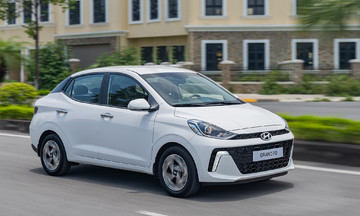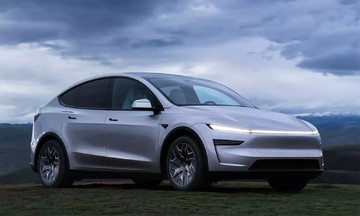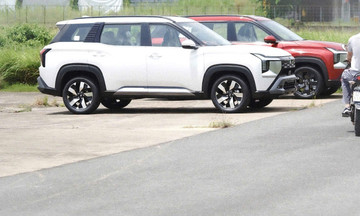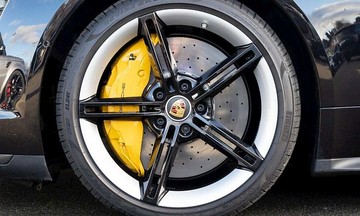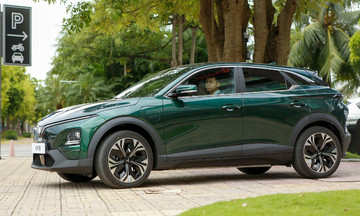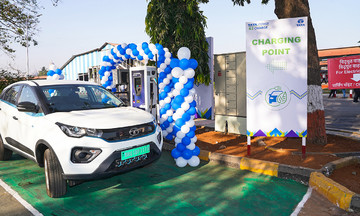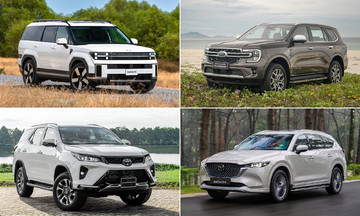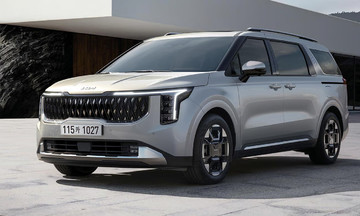Vietnam's motorbike market is undergoing a transformative shift as the government intensifies its push for green transportation. Electric motorbikes, once an optional choice, are now becoming mandatory in some areas of Hanoi and potentially Ho Chi Minh City, replacing gasoline-powered bikes.
The market offers a diverse range of electric motorbike models from various brands. Each company pursues its own strategy based on financial resources, technology, and its vision of how consumers will transition from gasoline to electric.
Diverse approaches
Vietnam's motorbike industry can be broadly divided into domestic and joint venture brands, each with distinct approaches to electric vehicles.
Domestic brands like Dat Bike, DKBike, Pega, Selex Motors, Detech, Anbico, and VinFast primarily focus on electric motorbikes. These range from young start-ups with moderate financial resources to large companies investing in electric vehicle production.
Detech, established in 1999, is one of the oldest domestic brands. The company focused on electric motorbikes and 50cc internal combustion engine models, a niche neglected by Japanese brands. Many other electric motorbike brands emerged around 2010, followed by Dat Bike and VinFast around 2018 and 2019.
Industry experts believe electric vehicles are the only way for Vietnamese brands to compete with established international players like Honda, Yamaha, SYM, Piaggio, and Kymco, which dominate the domestic market.
Electric motorbikes require fewer components and less complex technology, especially in the drivetrain, compared to gasoline engines. This presents an opportunity for domestic brands to avoid direct competition and establish an early advantage. However, even within this shared focus, domestic brands have diverse product strategies.
Companies like Pega, DKBike, Detech, and Anbico offer a wide range of affordable models, targeting budget-conscious consumers like students and homemakers. However, their designs are often less refined and sometimes imitate other brands.
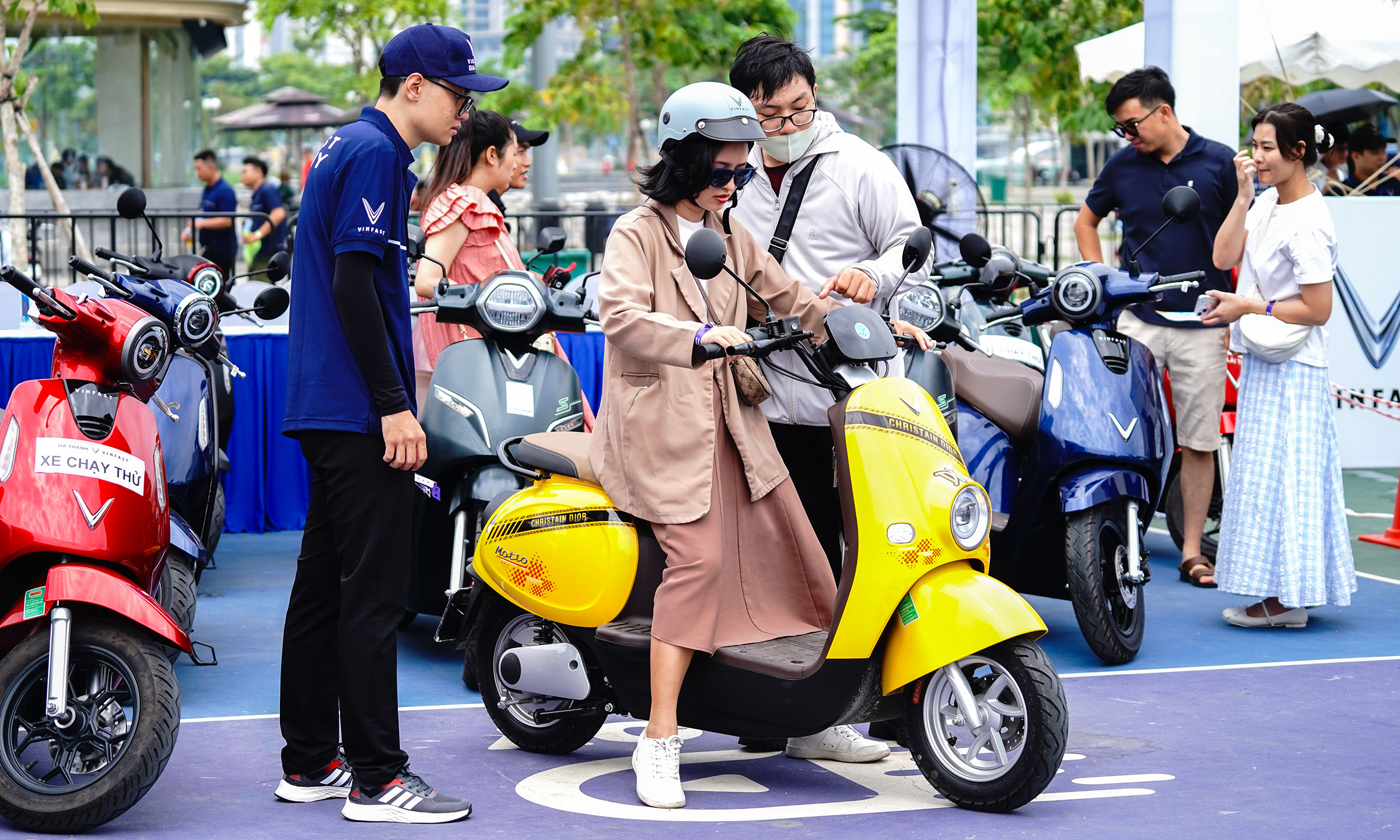 |
A customer test drives VinFast's Motio at an event in Ho Chi Minh City in late July. Photo: Pham Trung |
A customer test drives VinFast's Motio at an event in Ho Chi Minh City in late July. Photo: Pham Trung
Start-ups with limited financial resources, such as Dat Bike and Selex Motors, take a more cautious approach, focusing on specific niche markets. Dat Bike's Weaver 200, with its classic motorbike design, targets young, individualistic riders. Their Quantum S, resembling a scooter, aims for a broader consumer base.
Selex Motors initially focused on electric motorbikes for delivery and passenger services with models like the Camel and Camel 2. The company believes businesses are more receptive to electric vehicles due to lower operating costs and higher potential income compared to traditional gasoline motorbikes.
VinFast, with substantial financial resources and a long-term strategy, offers a range of electric motorbikes from affordable to high-end models, mostly resembling gasoline scooters. With its diverse product line and investment in design and technology, VinFast holds the largest market share in Vietnam's electric motorbike segment. Its sales are also boosted by Xanh SM, a technology company offering transportation services using VinFast vehicles.
International brands like Honda, Yamaha, SYM, Piaggio, and Suzuki have been more cautious in adopting electric vehicles. Honda, which has dominated Vietnam's motorbike market for decades with over 80% market share, only launched its first electric motorbike, the ICON e:, in 4/2025.
Yamaha introduced the Neo's in late 2022 but hasn't released any new electric models since. Suzuki has no concrete plans for electric motorbikes as its market share shrinks. Taiwanese brands Kymco and SYM, known for their 50cc and under gasoline motorbikes and affordable scooters, haven't entered Vietnam's electric vehicle market.
A long-time motorbike industry expert in Ho Chi Minh City suggests that established brands with extensive ecosystems, from component manufacturing and supply to distribution networks, face challenges in transitioning to electric vehicles. "This is similar to the automobile industry," he said. "Japanese brands are especially cautious, prioritizing stability and long-term efficiency."
Yadea and Tailg, leading Chinese electric motorbike and e-bike brands, have also entered the Vietnamese market. Both have invested in large-scale factories and offer diverse product lines across various segments.
The accelerating race
2025 marks a turning point for Vietnam's electric motorbike sector as gasoline motorbike restrictions begin in Hanoi.
Under Government Directive 20, Hanoi may ban gasoline-powered motorbikes within Ring Road 1 from 1/7/2026. By 1/1/2028, the restriction will extend to Ring Road 2, banning motorbikes and restricting fossil fuel cars. By 2030, the plan will expand to Ring Road 3.
While Ho Chi Minh City hasn't set a timeline for restricting gasoline motorbikes, it's developing plans to prioritize green energy vehicles and restrict gasoline and diesel cars and motorbikes in areas like downtown, Can Gio (old), and Con Dao Special Economic Zone.
Hanoi and Ho Chi Minh City are among Vietnam's largest motorbike markets. Restricting gasoline motorbikes will significantly impact consumer behavior and drive electric motorbike sales, according to industry experts.
Following Hanoi's announcement, brands like Dat Bike and Yadea launched programs allowing customers to trade in gasoline motorbikes for electric ones, a strategy VinFast has employed and recently intensified. Other brands like Honda, Yamaha, Pega, and DKBike offer discounts to stimulate demand.
A Honda ICON e: model in Hanoi. Photo: Luong Dung |
A Honda ICON e: model in Hanoi. Photo: Luong Dung
"It's clear that promoting electric motorbikes benefits the brands selling them, making the market more dynamic," said Nguyen Huu Phuoc Nguyen, CEO of Selex Motors. "But another crucial long-term aspect is that government policies create a fair competitive environment, supporting manufacturers contributing significantly to the domestic motorbike industry."
Nguyen believes that wider restrictions on gasoline motorbikes will rapidly increase demand for electric models, attracting new Vietnamese companies and international giants.
On 28/7, TMT, the distributor of Wuling electric cars, announced plans to launch five new electric vehicles by the end of 2025, along with charging and battery swapping stations. However, the company hasn't specified the vehicle types or whether they will be assembled or imported.
A sales expert believes government policies will create opportunities for electric vehicle companies to reach more consumers, creating a fair playing field for all. Established brands hesitant about electric vehicles need to adapt their strategies.
Honda, Vietnam's leading motorbike brand, has taken initial steps in the electric vehicle market by leasing the CUV e: for almost 1.5 million VND/month. Its only commercial electric model, the ICON e:, priced at 26.9-27.3 million VND, targets students.
Despite its slow start in electric vehicles, Honda aims to lead the global electric motorbike market. In 2028, Honda's first dedicated electric motorbike factory will open in India. By 2030, the company plans to introduce around 30 electric models, targeting 5% of global motorbike sales, or about 4 million units. Honda's global electric motorbike sales target for 2026 is one million units.
Honda's approach mirrors Selex Motors, focusing on commercial electric vehicles before targeting individual consumers. In Japan, Honda sold the Benly e: I, II, and Pro before the ICON e: and CUV e:. Vietnam Post is already using the Benly e: for deliveries.
Besides electric models, Honda developed the Mobile Power Pack e: (MPP), a removable battery technology that can be charged externally or swapped at public stations. This battery swapping platform is already implemented in India and will expand to other markets, addressing electric vehicle limitations like long charging times, battery degradation, and range anxiety.
"Every company needs to be prepared for any scenario," said Nguyen. "When the market changes, adaptability measures a company's competitiveness."
Thanh Nhan



